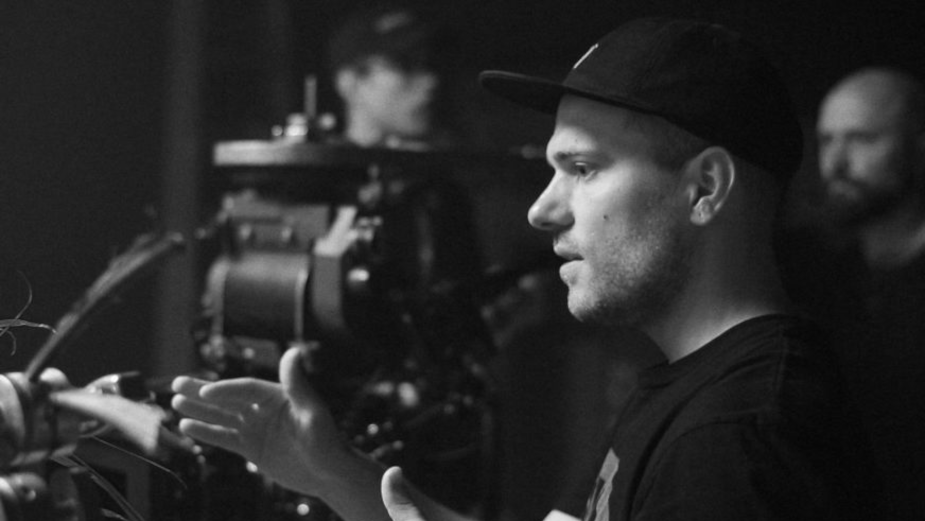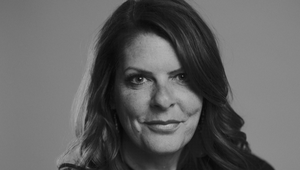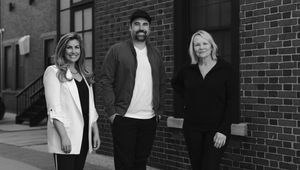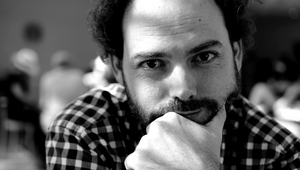
The Directors: Nathanael Sherfield

Nathanael Sherfield is director of commercial and independent films whose love of visual storytelling began while drawing comic book panels as a kid. He has directed national TV campaigns for clients such as Rocket Mortgage, GMC, Honda, and Chevrolet; and his feature film work has been screened and awarded by numerous festivals and organizations including Toronto International Film Festival, Dubai International Film Festival, Film Society of Lincoln Centre, and The Gotham Fiction Feature Lab. His feature directorial debut The Art of Power and his third feature as editor, Detroit Unleaded are available on most major streaming services. When not on set, you can find him cooking elaborate meals his kids won’t eat, or lost somewhere outdoors.
Name: Nathanael Sherfield
Location: Detroit, MI
Repped by/in: WETHEPEOPLE in the US
LBB> What elements of a script sets one apart from the other and what sort of scripts get you excited to shoot them?
Nate> I love when a board comes in that is open enough to creatively run with it, but I also love when a board comes in that has visual parameters already set. Boundaries and limitations can lead to a strong visual language. Here’s the rules of how we’re shooting, dressing, casting this, etc. I get excited when there’s an interesting juxtaposition to play with, when there’s a nugget of humour or a situation that rings true and specific, when an opportunity for a cool structure or rhythm in the edit presents itself. Mainly, what I’m always after is something that has the bravery to not be derivative.
LBB> How do you approach creating a treatment for a spot?
Nate> First, it’s important to me to find and express a personal connection to the material. What is an experience from my own life that I can bring to this, something specific that takes it beyond the generic? The approach is rarely the same from project to project, and never a linear process. Some boards come in fully fleshed out, and some are a couple of paragraphs. Usually, I’ll start by reading and re-reading the script (if there is one), letting my initial gut reaction and ideas flow freely without self-editing, playing back the edit in my head. After writing down those ideas, I go back and read the entire brief, making sure I understand the whole context, the brand insights, and what their goals are. Then, if I’m not already familiar with the brand, I’ll research their existing and past campaigns. At this point, I’ll come back to my initial ideas, and tweak or remove anything that’s completely off the mark for the brand. From there, the ravenous hunt for images and inspiration begins. It’s usually only after I’ve finished layouts and exhausted image searching that I begin to write copy, having already narrowed down what I want to say.
LBB> For you, what is the most important working relationship for a director to have with another person in making an ad? And why?
Nate> Because our industry is highly collaborative, it’s hard to narrow it down to just one relationship. Obviously, the creatives are my closest agency collaborators. On the production side, the EPs, line producer, DP and PD are all incredibly important relationships. Although, I will say that I can narrow down the most important thing I look for in a working relationship, no assholes.
LBB> What misconception about you or your work do you most often encounter and why is it wrong?
Nate> A lot of my work in the commercial space is either dialogue comedy or stylised automotive pieces, so naturally that type of reel will generate more of that work. In my personal life and passion projects however, I’m drawn to telling emotional, human stories that cultivate empathy and illuminate perspectives that are not often portrayed.
LBB> Have you ever worked with a cost consultant and if so how have your experiences been?
Nate> Yes, I’ve worked with them a couple of times, and they ended up being an advocate for us. Both jobs came in under budget, so it was a fairly painless process. I’m sure the line producer would disagree.
LBB> What’s the craziest problem you’ve come across in the course of a production – and how did you solve it?
Nate> Expect the best, but plan for the worse. No matter how buttoned up in prep we all are, problems are going to come up on every job. Things happen that are outside of our control. Inches of snow covering an exterior location the night before, celebrity talent feeling ill mid-shoot and leaving set, a flash thunderstorm destroying a dressed location, picture vehicles showing up a different colour than expected, arriving first to set to find your location liaison and their girl naked post coitus in the prop bed, I feel like I’ve seen it all. The important thing is to keep your cool and surround yourself with others that are positive and solution focused as well.
LBB> How do you strike the balance between being open/collaborative with the agency and brand client while also protecting the idea?
Nate> I rarely feel like I need to protect the idea from the agency. Client sometimes, yes, but not the agency. It’s their idea, their baby. They have been with it for months before I ever see it. Clearly communicating my vision (and any alterations to the idea) in the treatment phase is the best way to avoid conflict later, and be on the same page from the start. If my treatment vision doesn’t align, I either won’t get the job, or we’ll discuss and tweak on the pitch-back call before the job awards. Once I’m on a job, smaller conflicting ideas do come up, and politely talking through those on calls, pre-pro meetings and at video village sometimes happens. Some things are worth falling on the sword for, some aren’t, but if something is veering from the core idea or messaging, it has to be brought up. This type of conflict doesn’t bother me or feel awkward, it just shows that we all care about what we’re making and are being thoughtful in our approach.
LBB> What are your thoughts on opening up the production world to a more diverse pool of talent? Are you open to mentoring and apprenticeships on set?
Nate> Statistically, the majority of voices in our industry have looked like me, but our society doesn’t look just like me. There are so many lived experiences and different points of view that haven’t been seen or heard yet, and I love to see our industry starting to actively prop up and put diverse voices to the front. It results in more creative work that reflects the modern world. As far as mentoring, I’ve always made it a point to volunteer at local media literacy organisations, meet with younger directors, and when I worked on the brand side of things, steer creatives to their work. My goal for this year is to figure out a way (safely in the pandemic) to teach the soft skills and prep side of commercial directing, not just set experience. When I was starting out, I could navigate communicating my vision and running a set, but had no idea what a rep does, how to write a treatment or what to say on calls. I never want to stop learning and growing either!
LBB> How do you feel the pandemic is going to influence the way you work into the longer term? Have you picked up new habits that you feel will stick around for a long time?
Nate> I prefer video for creative calls, and hope that sticks around long term! It’s easier to break the ice, get into a rhythm and develop chemistry with new people when you get to see their faces. I love the energy of pitching in person, and video calls feel closer to that vs audio only creative calls.
LBB> Your work is now presented in so many different formats - to what extent do you keep each in mind while you're working (and, equally, to what degree is it possible to do so)?
Nate> I’m so used to framing for 16x9, 1x1, and 9x16 over the last few years that it’s second nature at this point to think about versioning and deliverables, and building a schedule that factors in those additional takes needed. For me, the exciting thing about :15’s and :06’s is figuring out how to distil the idea, especially in comedy, down to one or two quick and punchy images.
LBB> What’s your relationship with new technology and, if at all, how do you incorporate future-facing tech into your work?
Nate> While it’s important to keep up with new technology, I never really approach a job thinking about implementing a new tool or technology first. It’s always story first, and whatever tool or technology we pursue should be in service of the idea.
LBB> Which pieces of work do you feel really show off what you do best – and why?
Nate> Rocket Mortgage - Rickie and Barry
GMC WFA
Chevy Silverado













